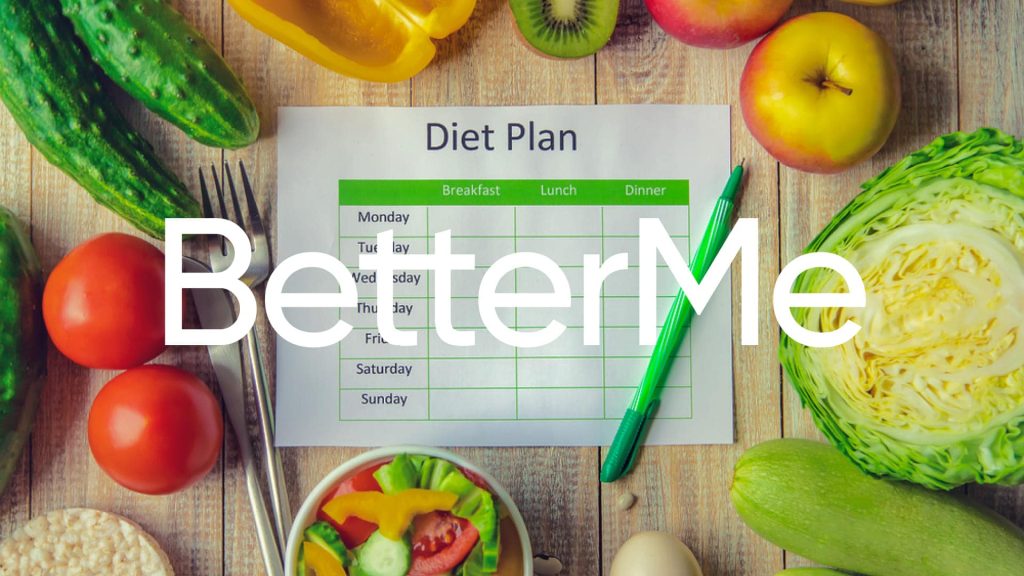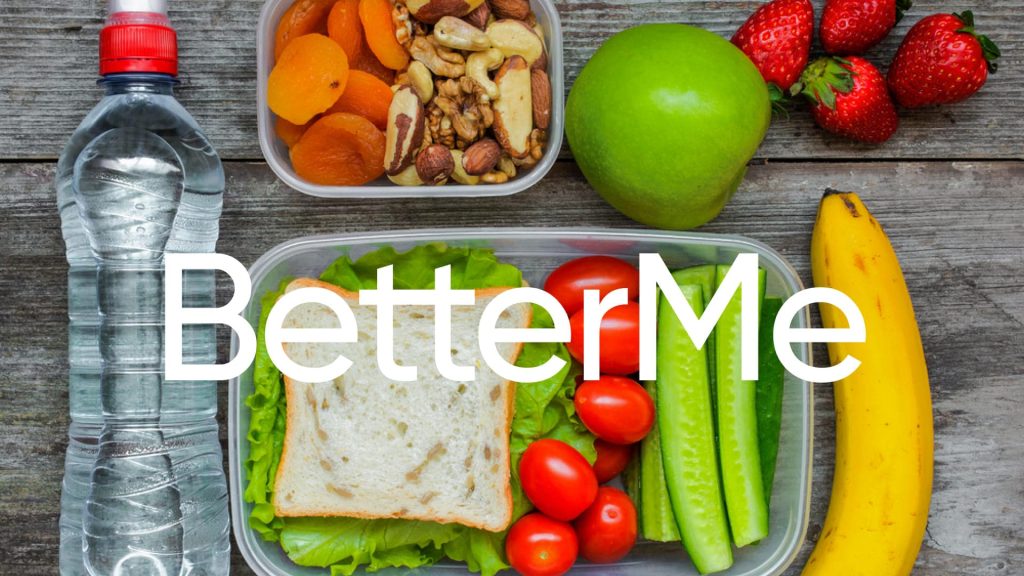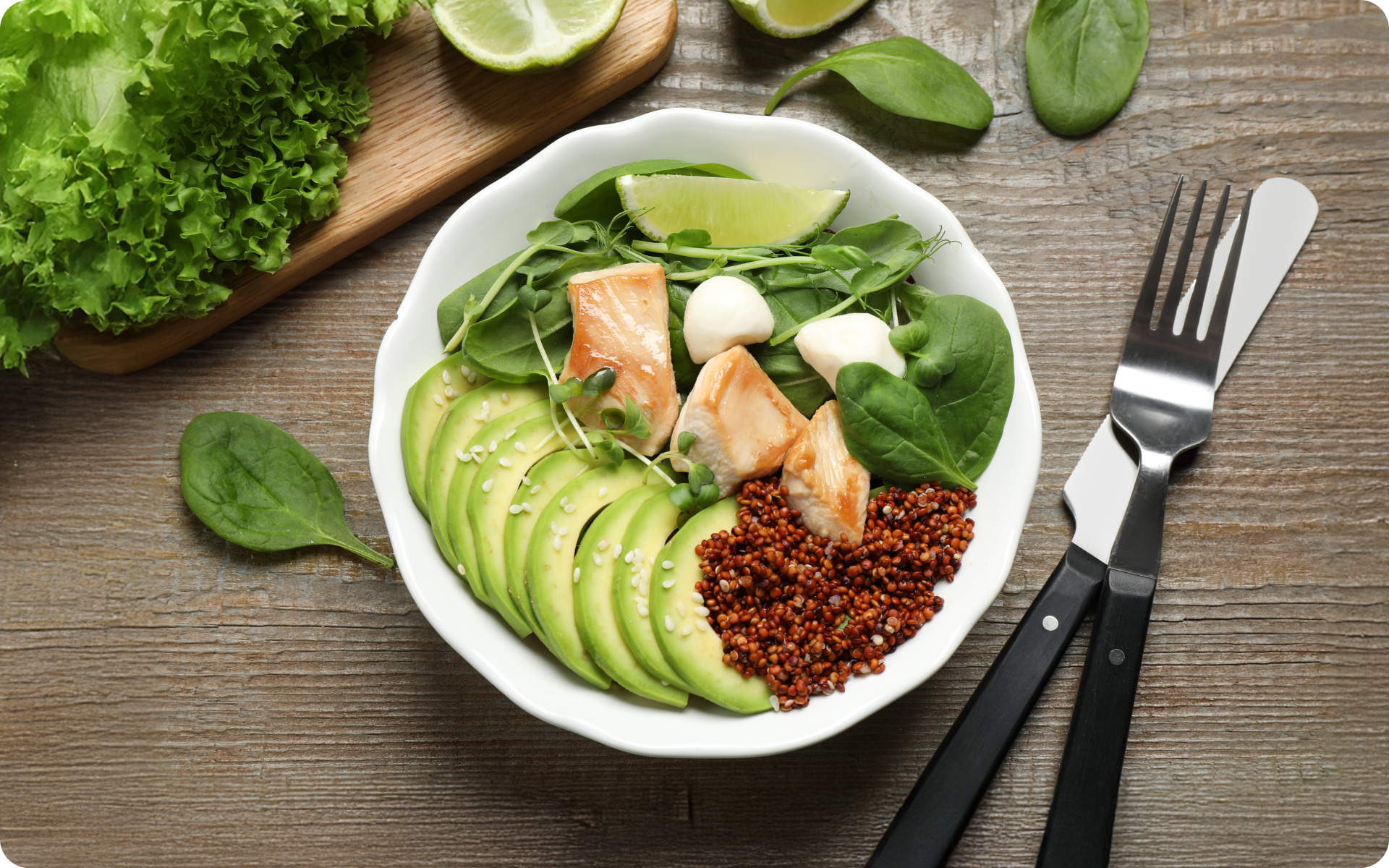Low-calorie diets may be necessary for various reasons, such as aiming for weight loss, managing medical conditions, or, simply, maintaining a healthy lifestyle.
The benefits of following a low-calorie meal plan are plentiful; from shedding those pesky pounds to gaining more energy and improving overall health.
However, beginners might face some challenges when starting out, like finding the right balance between calorie intake and nutrition.
How much should a low-calorie meal be? How many calories should you consume daily? And most importantly, how to plan meals on a low-calorie diet? We will address all these most commonly asked questions about low-calorie meal plans in this blog post.
By the end of this post, you should have a better understanding of how to start your low-calorie meal plan and how to make it sustainable for the long term. Let’s get started!
What Is A Low-Calorie Diet?
A low-calorie diet is a dietary plan that focuses on reducing daily calorie intake to promote weight loss, improve health, and/or manage certain medical conditions.
In simple terms, it involves consuming fewer calories than your body needs to maintain its current weight, thereby creating a calorie deficit that leads to weight loss.
The purpose of a low-calorie diet is to help individuals lose weight sustainably and healthily. It may be particularly beneficial for those who are overweight, have obesity-related health issues, or need to manage their weight due to specific medical conditions.
By focusing on nutrient-dense, low-calorie foods, this diet encourages healthier food choices and portion control, making it an effective weight management tool.
Now, you might be wondering, “Is 2000 calories a low-calorie diet?” The answer depends on various individual factors, such as age, gender, weight, and activity level, among others.
For some individuals, 2000 calories might be considered low; others may find this too high; there are those that consider this number as their maintenance level as well. Generally, a low-calorie diet ranges from 1200-1800 calories per day for women and 1500-2200 calories per day for men (1).
So, “How much should a low-calorie meal be?” To answer this question, let’s assume you’re following a 1200-calorie diet, which is considered a low-calorie diet.
If you divide your daily intake into three meals and one or two snacks, each meal should contain approximately 300-400 calories, with the remaining calories allocated for snacks.
Read More: The Ultimate 1800-Calorie Meal Plan For Weight Loss Success
What Are The Types Of Low-Calorie Diets?
Several different low-calorie diets can be tailored according to individual preferences and health goals. They include high protein low-calorie, low-carb low-calorie, low-fat low-calorie, Mediterranean low-calorie, and plant-based low-calorie meal plans.
High Protein Low-Calorie Meal Plan
A high protein low-calorie meal plan is a dietary approach that emphasizes consuming protein-rich foods while keeping the overall calorie intake low.
The primary focus is on lean proteins, such as chicken, turkey, fish, eggs, and plant-based sources like tofu, legumes, and nuts.
Who is it suitable for?
This meal plan is ideal for individuals looking to lose weight, build lean muscle mass, or maintain their current weight.
It’s particularly beneficial for athletes, bodybuilders, and those who engage in regular physical activity, as higher protein intake can support muscle recovery and growth.
Why is it effective?
A high protein low-calorie diet is effective for several reasons (6):
- Protein has a higher thermic effect than other macronutrients, meaning your body burns more calories digesting and processing protein compared to carbohydrates and fats.
- Protein-rich foods tend to be more satiating, which can help reduce hunger and prevent overeating.
- A higher protein intake supports muscle growth and maintenance, which can increase your metabolism and promote weight loss.
Low-Carb Low-Calorie Meal Plan
A low-carb low-calorie meal plan is a dietary approach that limits carbohydrate intake while focusing on low-calorie, nutrient-dense foods. This type of diet typically emphasizes proteins, healthy fats, and non-starchy vegetables, while reducing or eliminating grains, starchy vegetables, and sugars.
Who is it suitable for?
This meal plan is suitable for individuals whose goal is to lose weight, manage blood sugar levels, or improve insulin sensitivity (2). It can also benefit those who find it easier to control their appetite by reducing carbohydrate consumption.
Why is it effective?
A low-carb low-calorie diet is effective for several reasons (2):
- In very low-carb diets, drastically reducing carbohydrate intake makes your body enter a state of ketosis. This is a state wherein you burn fat for fuel instead of glucose, potentially promoting weight loss.
- Lower-carb diets can help regulate blood sugar levels and improve insulin sensitivity, which is beneficial for individuals with type 2 diabetes or those at risk of developing the condition.
- Low-carb diets often lead to a natural reduction in calorie intake due to increased satiety from protein and healthy fats.
Low-Fat Low-Calorie Meal Plan
A low-fat low-calorie meal plan is a dietary approach that focuses on reducing fat intake while keeping overall calorie consumption low. This type of diet emphasizes lean protein sources, whole grains, fruits, vegetables, and low-fat dairy products.
Who is it suitable for?
This meal plan is suitable for individuals aiming to lose weight, improve heart health, or reduce the risk of certain chronic diseases. It may also be beneficial for those with specific health concerns related to high-fat diets, such as high cholesterol levels or gallbladder issues (3).
Why is it effective?
A low-fat low-calorie diet is effective for several reasons (3):
- Fat contains more calories per gram (9 calories) compared to carbohydrates and proteins (4 calories), so reducing fat intake can lead to lower calorie consumption.
- Low-fat diets can help improve heart health by reducing LDL (bad) cholesterol levels and increasing HDL (good) cholesterol levels.
- Consuming a diet rich in whole grains, fruits, and vegetables promotes satiety and provides essential nutrients for overall health.
When it comes to weight loss, progress is made by inches, not miles, so it’s much harder to track and a lot easier to give up. BetterMe app is your personal trainer, nutritionist and support system all in one. Start using our app to stay on track and hold yourself accountable!
Mediterranean Low-Calorie Meal Plan
A Mediterranean low-calorie meal plan is a dietary approach inspired by the traditional eating habits of countries surrounding the Mediterranean Sea.
This diet focuses on consuming whole, minimally processed foods, including fruits, vegetables, whole grains, legumes, lean proteins, and healthy fats while still keeping your overall calorie intake low.
Who is it suitable for?
This meal plan is suitable for those who want to lose weight, improve heart health, or adopt a healthier lifestyle (4). It’s also an excellent option for those who enjoy a variety of flavors and cuisines and prefer a less restrictive approach to dieting.
Why is it effective?
A Mediterranean low-calorie diet is effective for several reasons (4):
- The focus on nutrient-dense, whole foods promotes satiety and helps control calorie intake.
- The Mediterranean diet is rich in healthy fats from sources like olive oil and nuts, which can improve heart health and provide long-lasting energy.
- A balanced approach to macronutrient distribution (carbohydrates, proteins, and fats) makes this diet sustainable and enjoyable for long-term weight management.
Plant-Based Low-Calorie Meal Plan
A plant-based low-calorie meal plan is a dietary approach that emphasizes whole, plant-based foods while keeping overall calorie intake low. This type of diet includes fruits, vegetables, whole grains, legumes, nuts, and seeds while minimizing or eliminating animal-derived products.
Who is it suitable for?
This meal plan is suitable for individuals whose target is to lose weight, improve overall health, or adopt a more environmentally friendly and ethical lifestyle (5). It’s also a great option for vegetarians, vegans, or those interested in reducing their consumption of animal products.
Why is it effective?
A plant-based low-calorie diet is effective for several reasons (5):
- Plant-based diets are typically high in fiber, which promotes satiety and aids in digestion.
- A focus on nutrient-dense, whole foods helps control calorie intake and provide essential vitamins and minerals for overall health.
- Plant-based diets have been associated with lower risks of chronic diseases, such as heart disease, diabetes, and certain types of cancer.
How To Create A Low-Calorie Meal Plan?
Creating a low-calorie meal plan can be a straightforward process if you break it down into actionable steps:
Step 1: Determine Your Calorie Needs
Estimate your daily calorie needs based on factors like age, gender, weight, height, and activity level. You can use online calculators or consult with a nutritionist to determine the appropriate calorie intake for your goals (weight loss, maintenance, or overall health improvement).
Read More: 1500 Calorie Meal Plan High Protein
Step 2: Choose A Diet Type
Select a low-calorie diet type that aligns with your preferences, dietary restrictions, or health concerns. Some popular options include high-protein low-calorie, low-carb low-calorie, low-fat low-calorie, Mediterranean low-calorie, and plant-based low-calorie diets.
Step 3: Plan Your Meals
Divide your daily calorie intake into meals and snacks. For example, if you’re following a 1500-calorie diet, you could plan for three 400-calorie meals and two 150-calorie snacks.
Step 4: Create A Balanced Plate
Aim for a balanced plate at each meal, consisting of a variety of nutrient-dense foods:
- Protein – include lean proteins like chicken, turkey, fish, tofu, legumes, or low-fat dairy products.
- Vegetables – fill half of your plate with non-starchy vegetables like leafy greens, bell peppers, broccoli, or cauliflower.
- Carbohydrates – opt for whole grains or starchy vegetables like brown rice, quinoa, sweet potatoes, or whole wheat pasta.
- Healthy Fats – incorporate moderate portions of healthy fats like avocado, nuts, seeds, or olive oil.
Step 5: Make A Shopping List
Create a shopping list based on your planned meals and snacks, focusing on fresh, whole, and minimally processed foods. Organize your list by grocery store sections (produce, meats, dairy, etc.) to streamline your shopping experience.
Step 6: Meal Prep
To save time and ensure you stick to your plan, consider meal prepping for the week ahead. Cook proteins, grains, and vegetables in bulk and portion them into individual containers for easy grab-and-go meals.
Step 7: Monitor Your Progress And Adjust As Needed
Track your progress by weighing yourself regularly or taking body measurements. If you’re not seeing the desired results, adjust your calorie intake, macronutrient distribution, or exercise routine.
Sample Low-Calorie Meal Plan: 1500 Calories
Here’s a sample one-day low-calorie meal plan, totaling around 1500 calories. This plan includes three main meals and two snacks, with a balance of protein, carbohydrates, healthy fats, and a variety of fruits and vegetables.
Breakfast: Veggie Omelette With Whole Grain Toast (400 calories)
- 2 large eggs
- 1 cup mixed vegetables (spinach, bell peppers, onions, tomatoes)
- 1/4 cup low-fat shredded cheese
- 1 slice of whole-grain toast
- 1 tsp olive oil
Snack 1: Greek Yogurt With Berries And Nuts (150 calories)
- 3/4 cup non-fat Greek yogurt
- 1/2 cup mixed berries (blueberries, raspberries, strawberries)
- 1 tbsp chopped nuts (almonds, walnuts, or pecans)
If you wish to free yourself from all the extra pounds that have been weighting you down for way too long, start using the BetterMe app and overhaul your entire life!
Lunch: Grilled Chicken Salad With Quinoa (450 calories)
- 4 oz grilled chicken breast
- 2 cups mixed salad greens
- 1/2 cup cooked quinoa
- 1/4 cup cherry tomatoes
- 1/4 cup cucumber slices
- 1/4 avocado
- 2 tbsp vinaigrette dressing (made with olive oil and vinegar)
Snack 2: Baby Carrots And Hummus (100 calories)
- 1 cup baby carrots
- 2 tbsp hummus
Dinner: Baked Salmon With Roasted Vegetables And Brown Rice (400 calories)
- 4 oz baked salmon
- 1 cup roasted mixed vegetables (broccoli, cauliflower, zucchini)
- 1/2 cup cooked brown rice
- 1 tsp olive oil (for roasting vegetables)
- Lemon wedge and fresh herbs for seasoning
This meal plan can be adjusted to fit your specific calorie needs, dietary preferences, or restrictions. You can also swap out ingredients or meals for variety while maintaining a low-calorie approach.
Conclusion
A low-calorie meal plan can be an effective strategy for weight loss, improved health, and better weight management.
By understanding various types of low-calorie diets, determining your calorie needs, and creating a balanced and personalized meal plan, you can work towards achieving your health goals. Just remember that consistency, variety, and proper nutrition are essential components of any successful low-calorie diet.
DISCLAIMER:
This article is intended for general informational purposes only and does not serve to address individual circumstances. It is not a substitute for professional advice or help and should not be relied on for making any kind of decision-making. Any action taken as a direct or indirect result of the information in this article is entirely at your own risk and is your sole responsibility.
BetterMe, its content staff, and its medical advisors accept no responsibility for inaccuracies, errors, misstatements, inconsistencies, or omissions and specifically disclaim any liability, loss or risk, personal, professional or otherwise, which may be incurred as a consequence, directly or indirectly, of the use and/or application of any content.
You should always seek the advice of your physician or other qualified health provider with any questions you may have regarding a medical condition or your specific situation. Never disregard professional medical advice or delay seeking it because of BetterMe content. If you suspect or think you may have a medical emergency, call your doctor.
SOURCES:
- How Many Calories Should I Eat a Day to Lose Weight? (2023, medicinenet.com)
- Low Carbohydrate Diet (2023, nih.gov)
- Low Fat Diet (2023, nih.gov)
- Mediterranean Diet versus Very Low-Calorie Ketogenic Diet: Effects of Reaching 5% Body Weight Loss on Body Composition in Subjects with Overweight and with Obesity—A Cohort Study (2022, nih.gov)
- Plant-Based Diet as a Strategy for Weight Control (2021, mdpi.com)
- Protein for Life: Review of Optimal Protein Intake, Sustainable Dietary Sources and the Effect on Appetite in Ageing Adults (2018, nih.gov)












